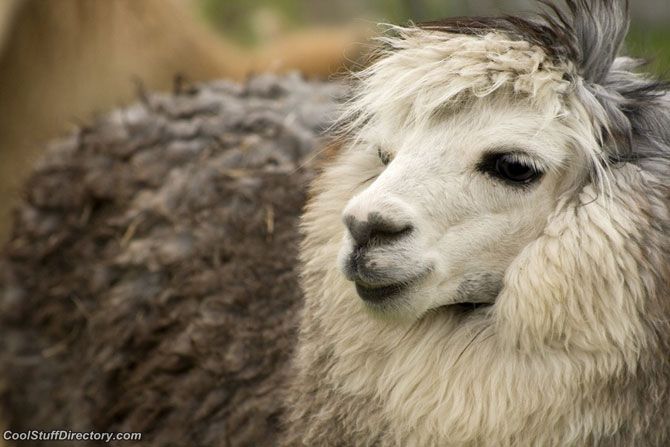Alpaca is probably the prettiest of the family of camelids,
which also includes the llama, guanaco and vicuna from South America and
one-and two-humped camels from Asia and Africa. Fluffy crests, graceful neck,
naive view and fun "smile" make these handsome alpaca world
ungulates.
But except for the charming and whimsical look, these
creatures can boast almost the most silky hair in nature (also known as
alpaca), which has many uses. It was for her animals are sheared annually.
Alpacas - especially fiber that tight angora and cashmere
thinner, smoother than silk, cotton is softer, warmer, goose down and knit
better breathability. Also, do alpacas have very remarkable features.
Since the end of September the public celebrated the Day of
the alpaca, offer to find out that you had not known about these fascinating
camelids.
They are ancient
Alpacas have been domesticated by the Incas more than 6000
years ago, and they were grown for unusual coat. Thanks to the quality and
characteristics of all the extraordinary alpaca fibers were used exclusively
for the elite and the nobility.
They provide excellent hypoallergenic wool
Alpaca like a sheep, but it is warmer and does not cause
itching. It has no lanolin, making it hypoallergenic and can be processed
without heat or harsh chemicals.
They are fireproof
Technically, alpaca wool, refractory, to the most stringent
tests of the first class has been assigned for use in the manufacture of
clothing and home decor.
They are waterproof
Like wool, alpaca fiber waterproof, but they can absorb
moisture through the unique ability to simulate cotton during dehumidification.
These properties make easier alpaca wool, but warmer than cotton in a cool and
humid climate.
They can be a variety of shades
Alpaca fibers are 16 tones, which are recognized in the
textile industry, from white and pinkish-gray and yellow to deep brown. In
addition, they can also make different combinations, which minimize the need
for polluting dyeing.
In the world there are two types of Alpaca
There are two types of alpacas: Suri and huacaya. Suri fiber
grows and form long silky braids. Wool huacaya thick and curly, like a teddy
bear, which is why animals look very "wool." Huacaya much more common
than Suri.
They can interbreed
Alpacas and llamas may well breed. Their offspring is called
huarizo and these animals are highly valued for the long hair.
They share a "bathroom"
Alpacas share a common dunghill (fortunately, not where they
graze.) Due to this tendency of some alpaca even managed to keep the house.
They hoot and produce sounds muffled
Buzz - the most common sound produced alpaca, which is like
a musical purr. Alpacas hum when they are interested, happy, worried, bored, and
afraid of something or fear. In one moment of surprise animal starts popping
roar that pick up the rest of alpacas in the herd in the direction of a
possible threat. During the mating season males romantic alpaca emit guttural
sounds.












.jpg)

.jpg)

.jpg)







0 comments:
Post a Comment